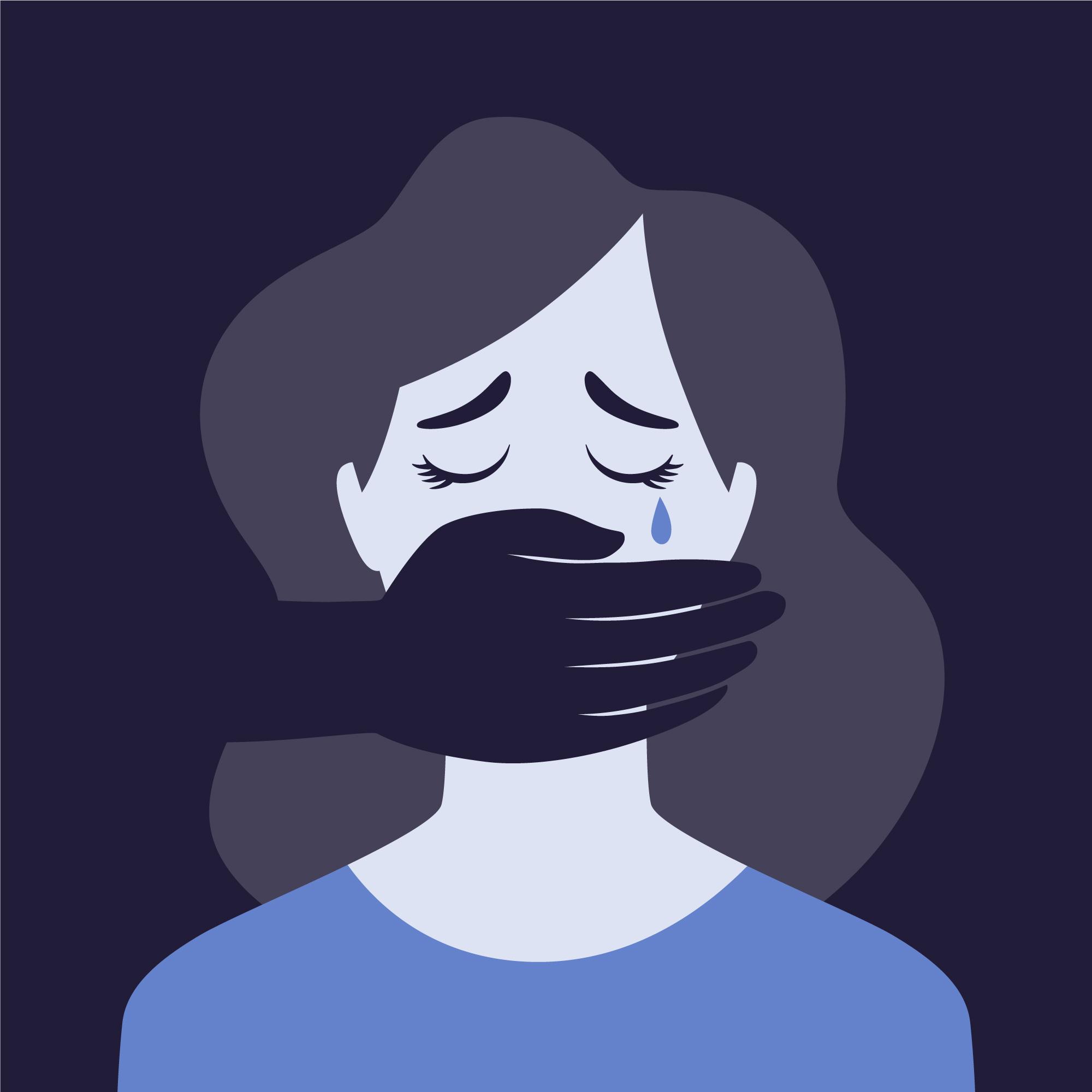Sexual Trauma - Its Psychological Effects
Sexual trauma occurs when a person is subjected to sexually improper behavior, regardless of the type of activity. This disclosure occurs either without their knowledge or when their permission is coerced. Although not everyone reacts the same way to stress or trauma, those who do often experience the associated distress in fear, anxiety, or despair. However, nobody should bear the burden alone, especially as assistance is readily accessible.
Author:Suleman ShahReviewer:Han JuOct 04, 20220 Shares107 Views

Sexual traumaoccurs when a person is subjected to sexually improper behavior, regardless of the type of activity. This disclosure occurs either without their knowledge or when their permission is coerced.
Although not everyone reacts the same way to stress or trauma, those who do often experience the associated distress in fear, anxiety, or despair. However, nobody should bear the burden alone, especially as assistance is readily accessible.
What Is Sexual Trauma?
Sexual trauma results from being subjected to any kind of sexual abuse. Abuse of a sexual nature occurs when an offender engages in conduct that is both improper and meant to provide the offender with sexual pleasure.
Sexual harassment may take the form of physical contact (being touched or grabbed in a sexual way), verbal harassment (being humiliated or threatened with sexual actions), or visual harassment (being forced to witness sexual pictures or activities). A person who is hurt by this kind of behavior may be hurt physically, feel a lot of stress, or even be forced to do something sexual.
Sexual trauma may affect anybody, regardless of their age, gender, or social status. Every 73 seconds, someone in the United States experiences sexual violence, and every 9 minutes, that someone is a kid. More than half of these attacks occur in the survivor's own neighborhood or other places they should feel secure.
A clinical diagnosis of trauma reaction is called post-traumatic stress disorder (PTSD). A diagnosis of PTSD is made in relation to a cluster of reactions to sexual trauma. These include difficulties focusing, memory lapses, startle responsiveness, irritability, and hypervigilance, as well as persistent and intense flashbacks, thoughts, and dreams connected to the trauma.
People who suffer from PTSD have all been exposed to traumatic events or abuse. However, this is not true for everyone who has encountered trauma. Because of the connection between Attention Deficit Hyperactive Disorder (ADHD) and sex, it's also crucial to remember that many abused and neglected kids have probably been labeled with Attention Deficit Hyperactive Disorder.

Asking about trauma/sexual abuse
Psychological Effects Of Sexual Trauma
Childhood sexual abuse causes PTSD, depression, suicide, alcoholism, and eating disorders. Survivors may have limited sexual desire, relational problems, high-risk sexual activities, and extreme coping mechanisms. In extreme situations, women may exhibit personality disorder symptoms, including instability and impulsivity (i.e., borderline personality disorder).
According to limited research, the family environment and supportive reactions from family and intimate partners may enhance mental healthand functioning among survivors. Sexual trauma in adulthood has short-and long-term effects. Shock, panic, anxiety, bewilderment, and withdrawal are short-term consequences. Many survivors' symptoms improve within a few months, while other women suffer for years.
Long-term effects include PTSD, depression, eating disorders, sexual dysfunction, alcohol and drug usage, nonfatal suicide conduct and threats, bodily symptoms without medical diagnosis, and significant preoccupations with physical appearance. The severity of assault, previous unpleasant lifeevents, dysfunctional attitudes, and lack of control increase mental healthrisk.
Literature contains gaps and disputes. Little is known about childhood and adult sexual victimization among understudied women (e.g., racial, ethnic, religious, disability, sexual orientation, poor, and homeless minorities). PTSD as a main diagnosis for survivors is also being debated.
Critics say the diagnosis overemphasizes the survivor's participation in sexual trauma reactions and ignores social support and cultural influences. To address these constraints, academics, practitioners, activists, health educators, and policymakers must collaborate and use a common mental health vocabulary.
Advocates may use this information to advocate for specialized training for practitioners, support changes that ensure financing for rape crisis centers and associated services, and educate the public to enhance community responsiveness, eliminate stigma, and boost survivor resource knowledge.
People Also Ask
Can Trauma Make You Asexual?
Though some people who identify as asexual have experienced trauma, sexual trauma is not a direct cause of asexuality. A person's asexuality cannot be altered by having a different sexual experience or finding a different sexual partner.
How Many People Have Sexual Trauma?
In their lives, more than half of women and almost one-third of males will encounter sexual assault. As many as one in four women and roughly one in twenty-six males have been victims of either successful or attempted rape. One in nine men will be forced to have penetration at some point in their lives.
Why Does Trauma Make You Hyper Sexual?
It's also possible that increased sexual activity is linked to intense sentiments of guilt or shame after trauma. One way to deal with the symptoms of post-traumatic stress disorder is through sexual activity.
Final Words
Nearly 1 in 5 U.S. women is raped or sexually abused. Some Asian, African, and Middle Eastern nations have higher rates. Every year, men and boys are raped and sexually traumatized. Sexual trauma extends beyond physical harm. Being raped or sexually attacked may be traumatic, leaving you afraid, embarrassed, and alone with dreams and flashbacks.
The world seems unsafe. You lack trust. You lack self-confidence. Your judgment, self-worth, and sanity may be questioned. You may blame yourself or feel "filthy" or "damaged." Dangerous relationships make intimacy difficult. PTSD, anxiety, and despair are common among rape survivors.

Suleman Shah
Author
Suleman Shah is a researcher and freelance writer. As a researcher, he has worked with MNS University of Agriculture, Multan (Pakistan) and Texas A & M University (USA). He regularly writes science articles and blogs for science news website immersse.com and open access publishers OA Publishing London and Scientific Times. He loves to keep himself updated on scientific developments and convert these developments into everyday language to update the readers about the developments in the scientific era. His primary research focus is Plant sciences, and he contributed to this field by publishing his research in scientific journals and presenting his work at many Conferences.
Shah graduated from the University of Agriculture Faisalabad (Pakistan) and started his professional carrier with Jaffer Agro Services and later with the Agriculture Department of the Government of Pakistan. His research interest compelled and attracted him to proceed with his carrier in Plant sciences research. So, he started his Ph.D. in Soil Science at MNS University of Agriculture Multan (Pakistan). Later, he started working as a visiting scholar with Texas A&M University (USA).
Shah’s experience with big Open Excess publishers like Springers, Frontiers, MDPI, etc., testified to his belief in Open Access as a barrier-removing mechanism between researchers and the readers of their research. Shah believes that Open Access is revolutionizing the publication process and benefitting research in all fields.

Han Ju
Reviewer
Hello! I'm Han Ju, the heart behind World Wide Journals. My life is a unique tapestry woven from the threads of news, spirituality, and science, enriched by melodies from my guitar. Raised amidst tales of the ancient and the arcane, I developed a keen eye for the stories that truly matter. Through my work, I seek to bridge the seen with the unseen, marrying the rigor of science with the depth of spirituality.
Each article at World Wide Journals is a piece of this ongoing quest, blending analysis with personal reflection. Whether exploring quantum frontiers or strumming chords under the stars, my aim is to inspire and provoke thought, inviting you into a world where every discovery is a note in the grand symphony of existence.
Welcome aboard this journey of insight and exploration, where curiosity leads and music guides.
Latest Articles
Popular Articles
